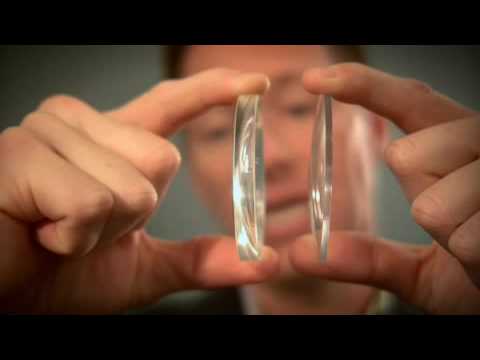The Ultimate Guide to Understanding Lens Thickness for Optimal Vision Care
When it comes to prescription eyewear, one of the aspects that determine their function, and therefore the wearer’s satisfaction, is lens thickness. The thickness of a lens can affect not only its appearance, but also its weight, its durability, and its optical clarity, all of which are crucial for good vision and eye comfort.
A lens’s thickness depends on several factors, such as the prescription strength, the material of the lens, the type of lens and the frame size. Some prescriptions require thicker lenses, and some materials can produce thinner, lighter lenses. Understanding these factors can help consumers make informed decisions when choosing their eyewear, and ultimately improve their visual experience.
Factors that Affect Lens Thickness
Prescription strength is the most significant factor that influences lens thickness. The higher the prescription, the more curvature the lens will have, and the thicker it will be at its centre. For people with moderate to high prescriptions, thicker lenses may be unavoidable, but the use of materials like high-index plastics can produce thinner, more aesthetically pleasing lenses.
Types of Lens Materials
The material of the lens that you choose can also impact its thickness. Traditional glass lenses, while they offer excellent optical clarity, are heavy and thick compared to more modern options. Polycarbonate and Trivex lenses, on the other hand, are much thinner and lighter than glass and also offer better impact resistance. High-index plastic lenses are even thinner and lighter than polycarbonate and Trivex, making them the preferred option for individuals with high prescriptions.
Frame Size
The size of the frame also plays a role in determining lens thickness. Generally, the larger the frame, the thicker the lenses need to be to fit, while smaller frames allow for thinner lenses. If you want to reduce the thickness of your lenses, choosing a smaller frame may be a good option. However, it’s important to remember that the frame should still fit comfortably and securely, and not sacrifice its function for aesthetics.
Conclusion
When it comes to choosing the right eyewear, lens thickness is a crucial factor to consider. By understanding what contributes to lens thickness, you can make an informed decision that considers both appearance and functionality, to achieve clear and comfortable vision. Remember to consult with your eye care professional to determine what lens thickness is appropriate for your prescription and lifestyle, and to help you choose the right lens material for your needs.
Most wanted in Hoya Vision:
Hoya Lens Engravings
Which lens is better Alcon or Johnson and Johnson?
What’s the rarest eye color?
What brand lenses does Costco use?
Legacy Eye Care Llc
Hoya Sensity Vs Transitions Xtractive
Should eyeglasses cover eyebrows?
What’s the difference between 1.5 and 1.6 lenses?
What do you call glasses that turn dark in the sun?
Wide Corridor Progressive Lenses
















